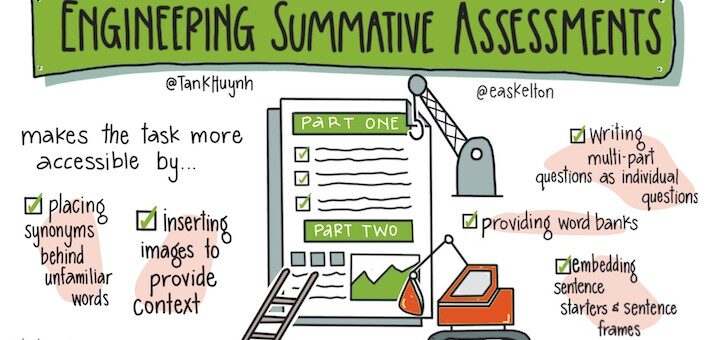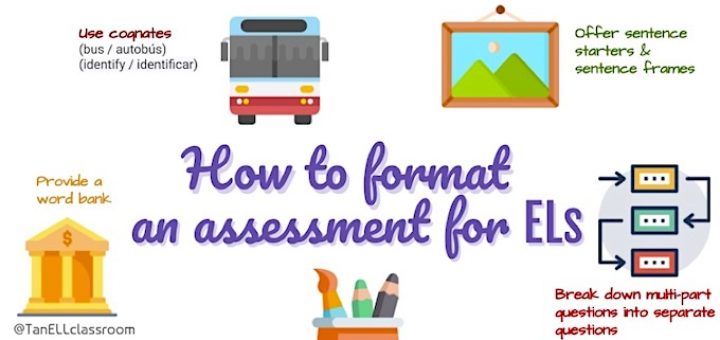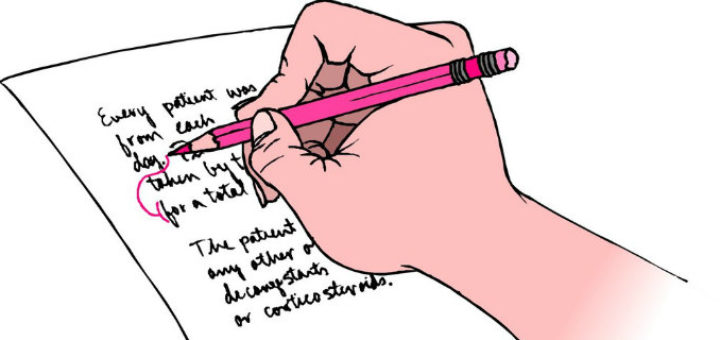Tagged: summative assessment
Content-based exams should gauge understanding of discipline-specific skills and concepts. But for many multilingual students exams are a reading and writing test in disguise. Language specialists Tan Huynh and Beth Skelton show how we can engineer justice into the assessment of MLs.
The pandemic distances between teacher and student require us to monitor the individual progress of learning even more closely. Teacher educator Curtis Chandler offers a crash course for doing just that – including tips on new apps and tools for summative assessment.
Wondering how to differentiate the format of the standard paper-and-pencil summative assessment to meet the needs of English learners? Tan Huynh shows how word banks, visuals, single-task questions, sentence starters, and synonyms can help ELs convey what they know.
Even if we don’t yet teach in a grade-less utopia, there are steps teachers can take to become more accurate and equitable in our grading policies. Cheryl Mizerny shares steps toward fairer grading: eliminate zeroes, avoid extra points, don’t grade homework, and more.
A struggling student’s recent exclamation that she UNDERSTOOD a history lesson confirmed to Shara Peters that her new school’s grading policy improves teaching and student achievement by shifting the emphasis from earning a higher grade to achieving mastery.



















